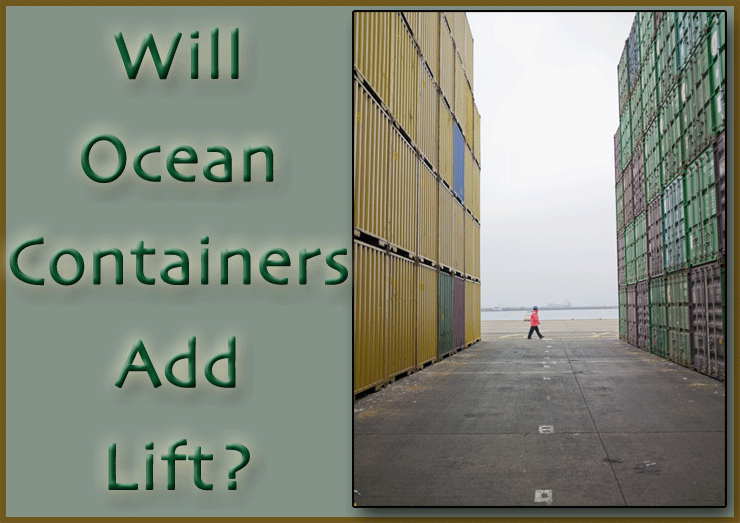
New
container weighing rules for ocean freight that will
implemented this July have the potential to give air
freight demand a welcome boost if maritime supply chains
are disrupted. Indeed, one leading carrier believes
the introduction of the new regulations has the potential
to temporarily reverse the long-term modal shift of
cargo from air to ocean.
On July 1, new container
weight verification regulations will enter into force.
Many predict chaos will ensue as ocean shippers around
the world attempt to weigh every single box moving by
sea in accordance with the complex new guidelines. But
the big question is whether airlines will be the beneficiaries
of any supply chain disruption at sea.
The new rules from the
International Maritime Organization come in the form
of an amendment to the Safety of Life at Sea Convention’s
(SOLAS) container weighing stipulations. As of July
1 shippers and their proxies will be compelled to verify
the weight of packed containers before the box can be
loaded onboard a vessel.
Multiple stakeholders
have predicted port congestion this summer, not least
due to confusion about how lines would like to receive
data on container weights. The International Federation
of Freight Forwarders Association (FIATA) is just one
of a host of organizations to call for more clarification
and information about the new rules.
Meanwhile, lines have
been issuing warnings that they will not load containers
unless the gross container weight has been verified.
Container terminals around
the world are now rushing to provide weighing solutions
at ports, but many are not expected to be available
in time for the July 1 cut-off point.
It is clear that the
new ruling has the potential to impact the entire ocean
container supply chain, taking in all players from packers
to forwarders, and through shippers, terminals, and
shipping lines, at least on some trade lanes. But to
what extent this could lead to modal shift from ocean
to air is difficult to predict.
IATA has suggested some
ports could suffer backlogs and the most progressive
airlines are already making preparations should a surge
in demand result this summer. “We are keeping
our network flexible and will do our utmost to meet
any demand. Furthermore, we are of course always offering
freighter charter flights,”said Andreas Pauker,
Lufthansa Cargo spokesman.
A spokesman for China
Airlines was more bullish. He told FlyingTypers the new container weight regulations had the potential
to temporarily reverse the long-term modal shift of
many cargoes from air to ocean. “Shippers may
seek alternative ways to bypass potential delays,”
he said. “But it is uncertain whether this change
will have the same impact on air cargo volumes/yields
as did the U.S. west coast seaport strike or congestion.”
He said China Airlines
would adjust its operational and marketing strategies
accordingly. “To capture potential opportunities,
we will keep a close eye on markets and increase flight
frequency based on air cargo demand,” he added.
“Meanwhile, our global sales unit will pay more
attention to developing and maintaining relationships
with customers and proactively provide airfreight solutions
once they have issues with ocean container movements.
“To assist our clients
in tackling the possible disruptions, China Airlines
will secure extra freight capacity for the requested
routes and meet their needs of charter services.”
Sky
King |





